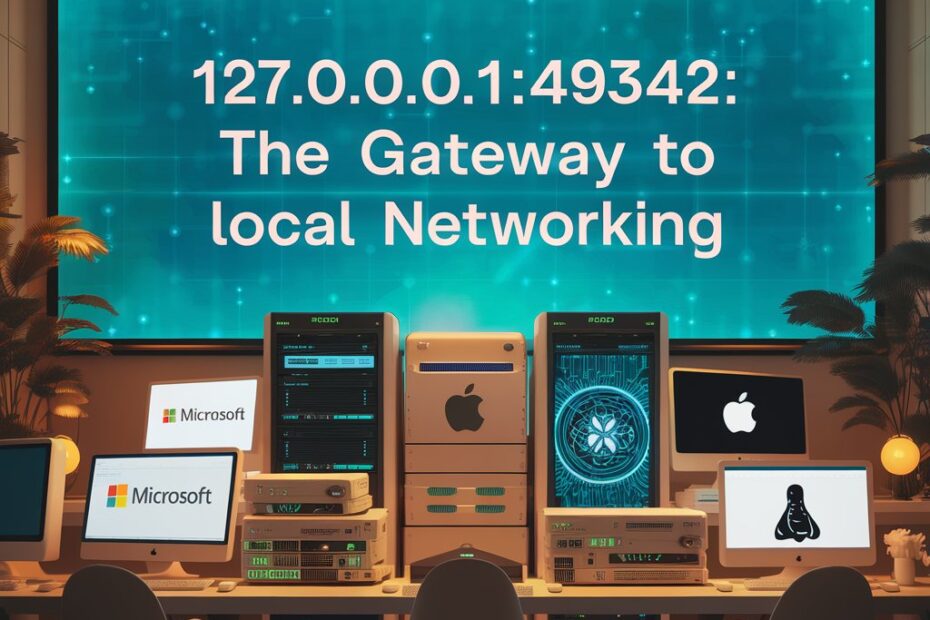When it comes to understanding network addresses and ports, 127.0.0.1:49342 often emerges as a key player. This unique combination of an IP address and a port number is pivotal in testing, development, and diagnostics across the digital ecosystem. Understanding this address is essential for those working in web development, software testing, or troubleshooting local applications. Let’s delve into the intricacies of 127.0.0.1:49342 and its significance.
What Is 127.0.0.1?
The IP address 127.0.0.1 is universally recognized as the “localhost” or “loopback” address. It refers exclusively to the device it is being used on. This address ensures that software developers and IT professionals can test their applications without connecting to an external network.
Key Features of 127.0.0.1
- Loopback Functionality
The loopback feature creates a virtual network within your computer. It’s invaluable for testing as it isolates the environment, allowing users to identify issues without external interference.
- Universal Application
Regardless of the operating system or hardware, 127.0.0.1 behaves similarly, making it a reliable tool across platforms.
- Safe Environment
Since it doesn’t connect to external devices, using 127.0.0.1 is inherently secure for local testing and diagnostics.
What Role Does Port 49342 Play?
The number following the colon in 127.0.0.1:49342 is the port number. This transient or temporary port is often used to connect a client and a server. Let’s break this down further.
Port Basics
- Port Number Range
Ports range from 0 to 65535 and are divided into well-known, registered, and dynamic categories. 49342 falls within the dynamic range (49152–65535), making it ideal for temporary connections.
- Temporary Assignments
Ports like 49342 are assigned for specific sessions or applications, ensuring smooth data exchange. Once the session ends, the port is released for reuse.
- Critical in Development
Developers frequently use such ports when running local application servers, ensuring streamlined communication between the software and the testing environment.
Why Use 127.0.0.1:49342?
Combining 127.0.0.1 with 49342 creates a powerful tool for localized networking. Here’s why:
Web Development and Testing
Developers often need a safe and isolated environment when creating websites or applications. Using 127.0.0.1:49342, they can host servers locally and preview their work without risking exposure to the internet. This setup ensures that only the developer’s device can access the application.
Example:
A developer testing a website’s login feature can run the server on 127.0.0.1 and designate port 49342 for communication. This approach allows them to troubleshoot issues without external interference.
Software Testing
Software testers use 127.0.0.1:49342 to simulate network environments. By leveraging this address and port, they can evaluate the performance of applications that rely on network communication. This is particularly useful for debugging, as it eliminates variables introduced by external networks.
Game Server Hosting
Many multiplayer games offer the option to create local servers. Using 127.0.0.1:49342, players can host matches exclusively for their devices or others connected to the same network. This setup ensures minimal lag and secure gameplay.
Common Issues With 127.0.0.1:49342
While 127.0.0.1:49342 is reliable, occasional problems can arise. Recognizing these issues helps in effective troubleshooting.
Application Conflicts
A conflict occurs if multiple applications attempt to use the same port (e.g., 49342). This can lead to error messages or failed connections. To resolve this, you may need to assign a different port manually.
Firewall Restrictions
Firewalls may block specific ports for security reasons. If 49342 is blocked, communication between the client and server can fail. Adjusting firewall settings resolves this issue.
Configuration Errors
Misconfigured settings in applications or development environments can prevent 127.0.0.1:49342 from functioning correctly. Double-checking configurations often resolve such errors.
How to Make the Most of 127.0.0.1:49342
Here are some tips to maximize the utility of 127.0.0.1:49342:
- Choose the Right Tools
Use reliable development tools and frameworks that support local-host connections.
- Monitor Port Usage
Monitor which ports are active on your system to avoid conflicts.
- Test Extensively
Always test applications thoroughly using 127.0.0.1:49342 to identify and address bugs before deployment.
Also Read it: Bizhunet: Exploring Its Meaning, Uses, and Relevance
Conclusion
127.0.0.1:49342 stands out as a versatile and indispensable resource in networking and development. Its role in creating isolated, secure, and efficient testing environments cannot be overstated. Whether you’re a web developer, software tester, or gamer, understanding and utilizing 127.0.0.1:49342 empowers you to streamline your processes and achieve reliable results.
By embracing this powerful tool, you gain the confidence to navigate complex networking challenges easily.
